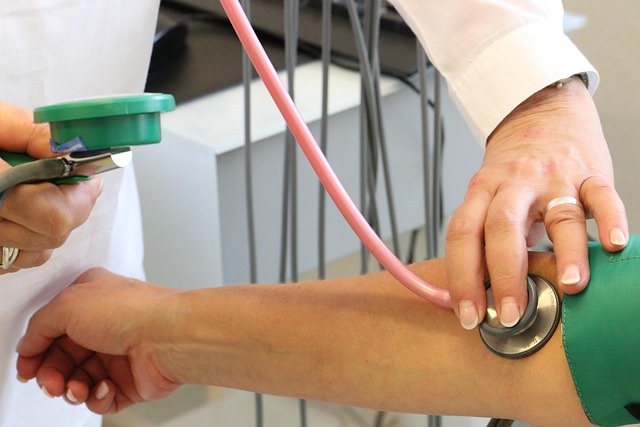Launch Your Career: Explore Medical Assisting in the USA
Discover the path to becoming a medical assistant in the United States. Gain insights into the comprehensive training that blends clinical expertise with administrative prowess. Learn about the essential skills, from patient care to office management, that form the backbone of this dynamic healthcare profession. Explore how hands-on experience and theoretical knowledge combine to prepare you for a rewarding career in medical assisting.

Mastering the Fundamentals of Healthcare Practice
Medical assisting programs offer a robust curriculum designed to equip aspiring professionals with a diverse skill set. These programs focus on developing proficiency in crucial healthcare procedures, including:
- Accurate measurement and documentation of vital signs
- Safe administration of medications and injections
- Assistance during minor surgical interventions
- Execution of basic laboratory analyses
- Performance of diagnostic tests like electrocardiograms
- Thorough patient preparation for medical examinations
As you progress through your studies, you’ll cultivate the confidence and precision necessary to execute these tasks effectively in various healthcare environments.
Gaining Real-World Expertise
The journey to becoming a proficient medical assistant involves more than theoretical knowledge. Many educational pathways incorporate practical elements to ensure graduates are well-prepared for the realities of the profession:
-
Advanced simulation facilities: Cutting-edge labs replicate authentic medical settings, allowing for risk-free practice of clinical skills.
-
Diverse clinical experiences: Many programs collaborate with local healthcare providers to offer students exposure to different medical specialties and patient demographics.
-
Professional mentorship: Some curricula include internship opportunities, enabling students to shadow experienced practitioners and gain invaluable insights.
-
Skill assessment: Regular practical evaluations ensure students meet the rigorous standards expected in the field.
These hands-on components are instrumental in building the practical expertise and self-assurance needed for a successful career in medical assisting.
Nurturing Patient-Centered Care Skills
Effective communication and empathetic patient interaction are cornerstone skills for medical assistants. Training programs typically cover:
-
Professional communication techniques: Strategies for clear and compassionate interaction with patients, their families, and healthcare colleagues.
-
Cultural awareness: Developing sensitivity to diverse cultural backgrounds and their impact on healthcare experiences.
-
Health education: Methods for effectively conveying medical information, treatment plans, and self-care instructions to patients.
-
Emotional intelligence: Techniques for providing comfort and support to patients during challenging times.
-
Conflict management: Approaches to address and resolve interpersonal challenges in healthcare settings.
-
Ethical practice: Understanding of patient confidentiality laws and ethical considerations in healthcare delivery.
Mastery of these interpersonal skills enables medical assistants to provide compassionate, patient-centered care across various healthcare settings.
Balancing Clinical and Administrative Expertise
Medical assistants serve as versatile professionals, adept in both patient care and office management. Training programs typically cover a wide array of responsibilities:
Clinical competencies:
- Supporting physicians during patient examinations
- Performing wound care and suture removal
- Collecting and processing laboratory samples
- Ensuring proper sterilization of medical instruments
Administrative proficiencies:
- Managing patient scheduling and maintaining accurate medical records
- Processing medical billing and insurance claims
- Applying medical coding for accurate documentation
- Overseeing medical supply inventory and procurement
- Providing professional reception services and patient communication
This comprehensive skill set positions medical assistants as invaluable team members across diverse healthcare facilities, from private practices to large medical centers.
Navigating Educational Pathways in Medical Assisting
When considering medical assistant education options, keep these factors in mind:
-
Accreditation: Prioritize programs recognized by esteemed organizations like CAAHEP or ABHES to ensure quality education.
-
Program duration: Options range from short-term certificate courses to two-year associate degree programs, allowing flexibility based on your career goals.
-
Curriculum comprehensiveness: Ensure the program offers a balanced mix of clinical and administrative coursework.
-
Practical experience: Look for programs that incorporate hands-on training or externship opportunities.
-
Flexible learning options: Some institutions offer hybrid programs combining online coursework with in-person clinical training.
-
Financial considerations: Investigate scholarship opportunities, grants, and loan options to support your education.
-
Certification preparation: Choose programs that align with requirements for professional certifications like the CMA exam.
Thorough research and comparison of these factors will help you identify the educational path that best aligns with your career aspirations in medical assisting.
The field of medical assisting offers a promising career trajectory in healthcare. Comprehensive training programs provide a solid foundation in essential clinical procedures, patient interaction skills, and administrative competencies. By pursuing education in this field, you position yourself to make a significant impact in patient care and healthcare operations.
Note: This article provides general information about medical assistant education and should not be considered as specific career advice. For personalized guidance, consult with educational institutions and career counselors specializing in healthcare professions.




